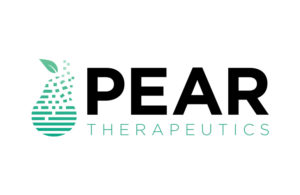 Pear Therapeutics today touted results from an extended retrospective analysis of real-world data for its reSET-O prescription digital therapeutic.
Pear Therapeutics today touted results from an extended retrospective analysis of real-world data for its reSET-O prescription digital therapeutic.
Boston-based Pear Therapeutics developed its reSET-O prescription digital therapeutic (PDT) for treating opioid use disorder (OUD).
According to a news release, results from the nine-month real-world data analysis demonstrated a continued long-term reduction in costly healthcare utilization categories, including inpatient (IP) stays and emergency department (ED) visits with OUD. The analysis was published in the peer-reviewed journal Expert Review of Pharmacoeconomics & Outcomes Research.
The study results suggest the possible durability of the reSET-O treatment effect and long-term stabilization of the clinical trajectory for patients in recovery from OUD, while also indicating a strong potential for the cost-effectiveness of the PDT in real-world care settings, Pear said.
Over a nine-month post-index period, the 444-patient study found that IP stays and ED visits decreased by 50% and 27%, respectively, while quarterly reductions in healthcare utilization were sustained during the analysis.
Additionally, the utilization of drug testing and adjunct counseling sessions decreased between months six and nine, suggesting a possible stabilization of patient outcomes at nine months. Buprenorphine adherence increased from 74% to 82% between the pre-index and post-index periods, suggesting that using reSET-O is associated with increased medication use.
“These findings show how reSET-O can improve total quality of care while reducing the main healthcare cost drivers in OUD,” Pear Therapeutics president & CEO Dr. Corey McCann said in the release. “Opioid misuse and overdoses continue to be at epidemic levels in the United States, and patients need access to durable evidence-based behavioral interventions that keep them in recovery, while reducing healthcare costs. In this critical time, patients need more flexible approaches to treatment that can be delivered remotely and that can scale up during times of increased demand for behavioral health and substance use recovery service.”

